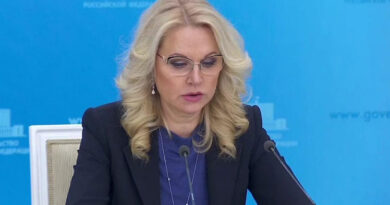Should US firms be worried about Hong Kong sanctions?
 Image copyright Getty Images
Image copyright Getty Images The future of American companies in Hong Kong has been thrown into doubt after Donald Trump signed an order to end the city’s preferential treatment.
The US president also signed legislation to impose sanctions on Chinese officials who crack down on rights in Hong Kong.
The measures came in response to Beijing imposing a new security law in the former British colony last month.
However, analysts are advising business leaders to take a considered approach.
«We are telling clients to take a wait-and-see approach. We just don’t have any details yet and this is very vague. This is not the time to freak out,» Shanghai-based Kent Kedl, partner at consultancy firm Control Risks told the BBC.
«The true impact is unknown. Trump makes these statements and then rounds off the edges afterwards,» he added.
The decision by the Trump administration to scrap Hong Kong’s special status will force non-Chinese companies to re-evaluate their operations in the city.
On Tuesday, The New York Times says it will move some of its Hong Kong staff to Seoul.
And while growing tensions between the US and China are likely to make Hong Kong less attractive in many respects there are also several reasons why the city may remain popular with foreign businesses.
Asian hubs
Many Western companies have picked Hong Kong as the location for their regional head offices, covering China as well as countries spanning Japan, Australia, Indonesia and India.
More than 1,500 foreign businesses have Asian headquarters in the city.
Of those firms some 300 are American companies.
American firms
There are more than 9,000 overseas and mainland Chinese companies operating in the city, according to the 2019 Annual Survey of Companies in Hong Kong with Parent Companies Located outside Hong Kong (SCoP).
That number rose by almost 10% between 2017 and last year.
Of those firms more than 1,300 are US companies, with around 85,000 Americans living in Hong Kong.
Stock market
Hong Kong is one of the world’s leading financial centres, with a stock market valued at HK$37.9tn ($4.9tn; £3.9tn), as of the end of June.
According to the city’s stock exchange that figure rose by 16% over the last year.
The exchange saw HK$87.5bn raised by Initial Public Offerings (IPOs) in the first six months of this year, a more than 20% increase on the same same period in 2019.
Investment
However, Hong Kong saw investment from overseas, known as foreign direct investment (FDI), slump last year.
According to the the United Nation’s Investment Trends Monitor, FDI into Hong Kong fell by 48% in 2019.
In contrast rival Asian financial centre Singapore saw FDI increase last year by 42%.
Mr Kedl concluded that, while company bosses shouldn’t ignore Mr Trump’s announcement, they should hold fire on making a decision on whether to pull out of Hong Kong.
«If we look at Hong Kong on a time scale with an explosion in the middle, our assessment is that we are ‘left of boom’. They need to start thinking about this, but not to make a decision yet.»


